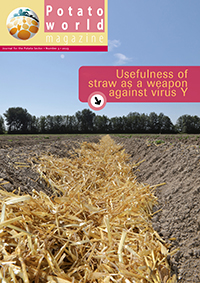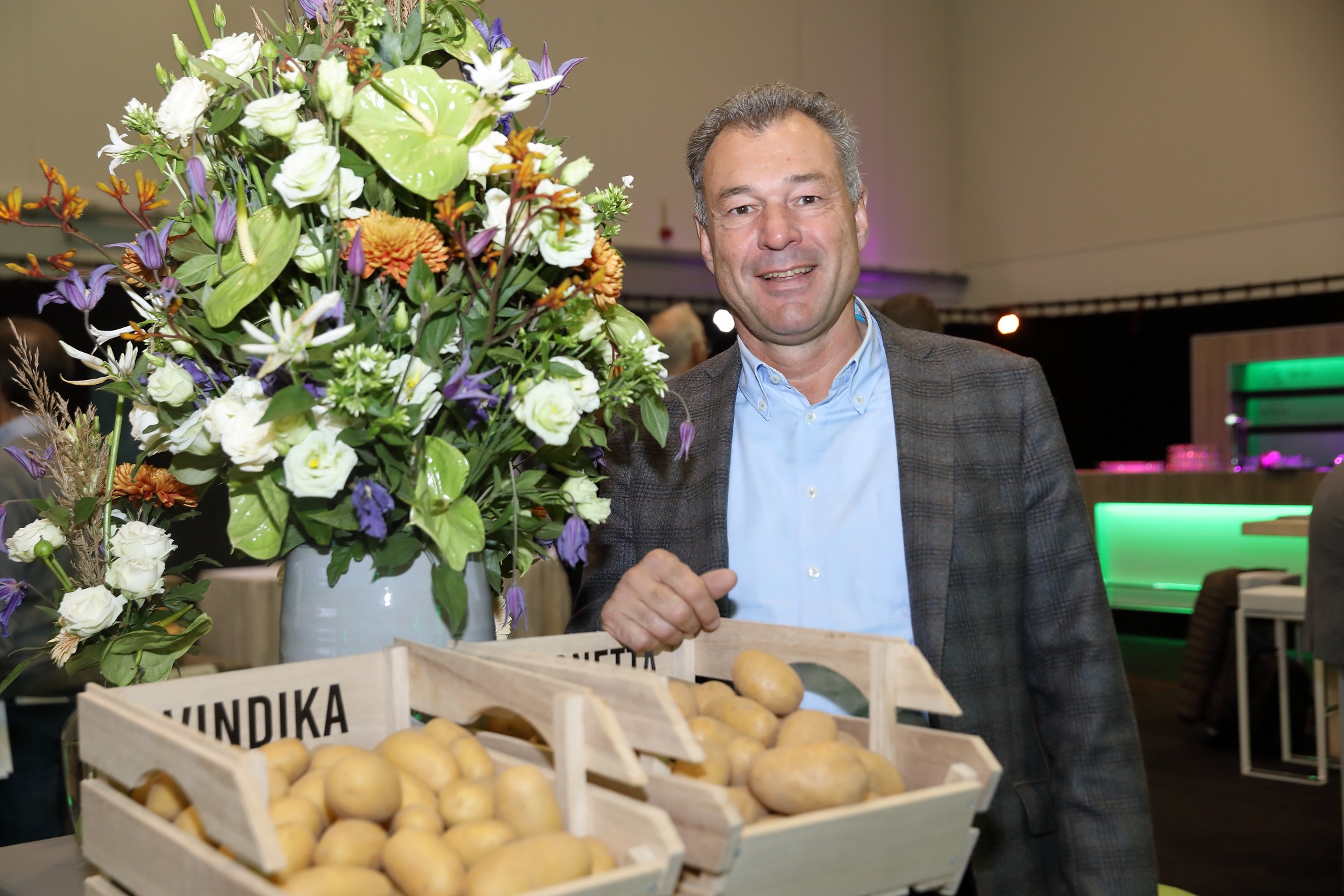Already a subscriber? Activate your premium account

Potatoworld Magazine

During the Potato Variety Days 2021, we asked participating breeding companies about the key focus of their breeders in their search for new varieties. In this blog post you may read the answer given by Jörg Renatus, Managing Director of Europlant International, Lüneburg (G):
The content of this blog originates from the article on the Potato Variety Days 2021 published in PotatoWorld magazine 2022/01.
By Zindziwe Janse, Jaap Delleman and Leo Hanse.
Jörg Renatus doesn’t need to think very long about the target question of the 2021 variety show. ‘What we focus on are the customers we do business with’, is his direct answer.
‘Answering the questions of our customers, the potato varieties they’re looking for, that should be our focus. As Europlant, we first of all focus on three key objectives, which are resistance, efficiency and stress factors. This will set us to work in all the different segments in which we’re looking for new varieties’, Renatus responds in the same breath. ‘What matters to us most are table, crisp and French-fry potatoes. Our salespeople and agents who are in contact with our customers collect information about their requests throughout the year. Twice a year, we have extensive consultations with our breeders in which these requests are discussed. It’s then up to them to get started, they determine the course’, the Director states frankly. ‘In fact, our breeders don’t just sit waiting at their desks or in their greenhouses for information about sales. They often also go out and about themselves and travel all over the world. For example, to assess and review the various trial fields with customers. So they themselves also collect the relevant information about which properties customers would like to see in their varieties. So it’s the sum of information that enters the breeding station from all sides. And that’s how we automatically arrive at our most important focal point and how we determine it. The three key objectives mentioned above have everything to do with that word sustainability. In potato cultivation, steps can be taken in this direction, for example, by ensuring Phytophthora resistance. You ask, who’ll decide on that in the end? We’re seeing that, in recent years, many breeding companies have started to work on this. However, the majority of the resistant varieties have only one resistance gene. Last summer, we saw the result of that, they all failed. When we went to our breeder with the request for Phytophthora-resistant varieties, he said from the start, you can have them, as soon as I have at least double resistances. And he was right, because only the strongest resistances survived. That’s why we leave the decisions about the direction of breeding to those who know the most about it. As an example of our main focal point, which is after all that all-encompassing sustainability, I’d like to show you two new varieties, Vindika and Simonetta. These are both strong on Phytophthora anyway, but they also have other strong resistances. The Vindika is an early, firm table potato that is especially suitable for the salad market. It has broad Ro 1 to 5 nematode resistance, physio 1 wart disease, and is not very susceptible to scabies or blue discolouration. Simonetta is a firm table variety for the fresh market with resistance to Ro 1 and physio 2 and 18 wart disease. This variety is also not very susceptible to scabies.’
Want to keep reading about the Potato Variety Days?
In the run-up to the event we published an e-book that you can download here!
Events
©2015 - 2024 Potatoworld | Webdesign and realisation COMMPRO